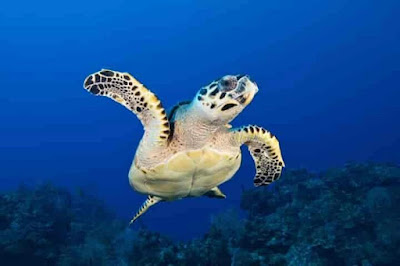Do sea turtles navigate for hundreds of kilometres by sensing the planet's magnetic field?
When marine creatures like sea turtles travel great distances in the oceans to their breeding grounds without any aid for navigation, it has fascinated scientists. A report in sciencealert.com states that a new study has revealed that this ability in turtles is due to its built-in geomagnetic steering and also plenty of luck and tenacity.
For this study 22 hawksbill turtles or Eretmochelys imbricata were fitted with GPS trackers to chart their routes they would adhere, to reach their foraging regions following mating and breeding. It was indeed surprising to know that the routes taken were circuitous.
For instance, one creature swam 1,306 kilometres to reach an island which was merely 176 km from where it started. Basically, the travelling entailed plenty of swimming before they reached the dry land.
In their paper, the scientists wrote: "Our results provide compelling evidence that hawksbill turtles only have a relatively crude map sense in the open ocean. The existence of widespread foraging and breeding areas on isolated oceanic sites points to target searching in the final stages of migration being common in sea turtles."

Comments
Post a Comment